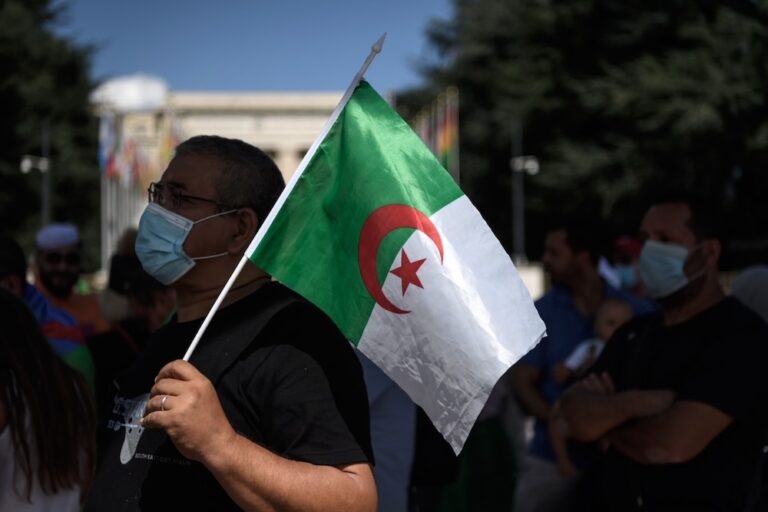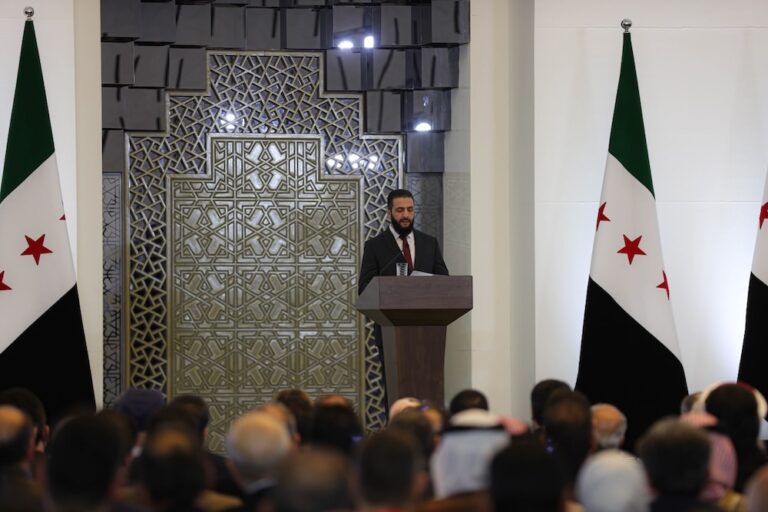The last time IFEX came together as a network was in Montreal in 2017, under the theme: Rights, Resistance, and Resilience. But in our current global context it has become increasingly apparent that we need to move beyond resistance, and find ways to disrupt the current paradigm.
The IFEX network now includes more than 100 member organisations from over 60 countries, all dedicated to defending freedom of expression. As Executive Director Annie Game noted in her opening remarks at IFEX’s 2019 Strategy Conference, our traditional approaches are hitting walls. “We need to rethink how to do this work in a climate where outrage has been normalized, protests ignored, statements unheard and laws upturned.”
We chose Berlin for this meeting – a city known as an international hub of creativity, innovation, tech, community, and culture. A natural fit for those of us who love freedom of expression, and a city that knows something about taking down walls.
We wanted to use this time together to create a public square for the IFEX network and our allies, a creative space conducive to shaking things up, sparking new ideas, and finding ways to turn those ideas into actions.
Was it amazing? Yes, it was!
Creativity was spliced into every aspect of this meeting. We even had a soundtrack; a revolutionary musical playlist provided by Venezuelan journalist and DJ Melanio Escobar. Throughout the conference, Iranian political cartoonist (and head of United Sketches) Kianoush Ramzani sat in on sessions, visually capturing key conversation points with his pen, and Spanish illustrator from Child Rights International Network (CRIN) Miriam Sugranyes captured her overall impressions of the conference with the inspiring painting that appears at the top of this article.
Artistic expression was the theme of the first plenary:The Early Show (it was, after all, 9:30 in the morning). Political scientist, thought-leader (and temporary IFEX talk-show host) Geraldine de Bastion led a wide-ranging discussion with writer Iyad el-Baghdadi, singer, activist and parliamentarian Bobi Wine – who also treated us to a rousing musical performance – and Quechua artist, writer, and documentary film-maker Violeta Ayala.
We brought that same creative lens to the urgent question of how to campaign for greater impact. In Campaign Revival, activist and former UN Special rapporteur on the right to freedom of assembly Maina Kiai was joined for a chat ‘around the kitchen table’ by Brazil’s Queer Museum Curator Gaudêncio Fidelis, founder of Girl Activists of Kygyzstan Zhanna Zharmatova, Lady Parts Justice League founder (and former head writer for The Daily Show) Lizz Winstead, and Syrian Archive Director Hadi El Khatib. Then, in the session Really, Who is Listening? John Clark of UK brand agency Coley Porter Bell shared some timely and welcome ideas about how we can adapt some of the strategies corporate and political campaigns use to garner more influence and get our messages to more strongly resonate with the audiences we need to reach.
Journalist safety and the problem of impunity were also front and centre. In conversation with Annie Game, Dr. Agnès Callamard, the UN Special Rapporteur on extrajudicial, summary or arbitrary executions (and Director of Columbia Global Freedom of Expression at Columbia University), reported on her inquiry and push for accountability in the 2018 murder of journalist Jamal Khashoggi. She called on us all to not let this case fade, and to support her in her continued efforts as she heads toward presenting her report to the UNHRC in June 2019.
Technology’s role in enabling stronger connections between news sites and their audiences was the subject of an interactive session facilitated by Gayathry Venkiteswaran: Journalism and Communities of Action, featuring journalists Inday Espina-Varona from the Philippines, Melanio Escobar from Venezuela, and Can Dündar from Turkey.
Those were the plenaries; smaller breakout sessions focussed on some of the dynamic, complex and evolving issues we all encounter in our defense of freedom of expression and information: When does being categorically against censorship ignore valid concerns of other groups and potential allies? In an increasingly polarized context, are we losing our capacity to reasonably debate with one another? How can we ensure that our calls for transparency don’t jeopardize the principle of anonymity? When it comes to regulating tech companies, what approach is best? How can we include more diverse voices into the work we do? Where do our free expression rights intersect with youth rights? Can more flexible funding help counter the ravages of the closing of civic space on our organisations?
Some of what we overheard:
“As an activist, you have to think in terms of decades. A 20-year plan: What do we have to start doing now, in order to see that change?”
“People always say: teenagers can do anything… just not now. Well, we aren’t fighting for our future as adults: we are fighting for things now.”
“We need to speak to conservatives, not just to progressives.”
Invited guests and participants from outside the IFEX network, including a good number of Berlin-based activists, helped stimulate and enrich our conversations, push our boundaries, and transform our thinking. If this meeting taught us all one thing, it was to break an old rule: Please, do talk to strangers!
As advocates for human rights and as believers in the power of expression, we need to collaborate and support each other, embrace our shared humanity, and take the time to acknowledge our successes. Such times are precious. So we made sure to bring dancing, music, and laughter into our public square as well – as we always do!
We all left Berlin with a lot more than just a new lanyard. We left with new perspectives, ideas, tactics… and allies.
And, speaking of artistic freedom, we also left our own mark on Berlin, in the shape of a mural painted by local graffiti artists Caro Pepe and Age Age on the wall of a small courtyard off of Hackescher Markt: a celebration of our collective efforts to break the chains that stifle freedom of expression.

IFEX Mural at Hackescher Markt in Berlin. Photo credit: Marco Lauber
It’s important for us to remember that some IFEX members were absent; either because, like our colleague Nabeel Rajab, they continue to suffer incarceration and ill-treatment in their home countries, or are restricted by travel bans.
When the conference ended, and everyone left to return to their homes, we were reminded again of the reality so many of our colleagues and allies live every day.
At the airport in Germany, Iyad el-Baghdadi was at first refused permission to board his flight to Ireland; he was told that it was because of his refugee status. Then, after his return to Norway, he was informed by authorities that he was facing a serious potential threat from Saudi Arabia. Iyad is a pro-democracy activist and a critic of Saudi Crown Prince Mohammed Bin Salman.
A few days later, in Uganda, Bobi Wine was detained, charged, and placed under house arrest, charged with holding an illegal assembly and procession in July 2018, when he led a street protest against Uganda’s then newly-imposed social media tax.
Erol Önderoglu, RSF correspondent in Turkey and editor of Bianet, returned home for yet another trial date, which was then postponed (part of the continued harassment of so many journalists and rights defenders in the country).
Tanzanian authorities prevented Dr. Wairagala Wakabi, executive director of Ugandan IFEX member CIPESA, from attending the commemoration of Tanzania Human Rights Defenders’ Day when they detained him upon arrival and then deported him.
Gaudêncio Fidelis returned to Brazil – a country that censored and shut down the Queer Museum exhibit he had curated, and where he received hundreds of death threats from the religious right, including from the man who is now president, Jair Bolsonaro.
We came together in Berlin to strengthen our resolve, mine our expertise, engage meaningfully with the issues and each other, and move forward together as network committed to freedom of expression. We are confident this was the case; our network is stronger, and our work is more important than ever.












